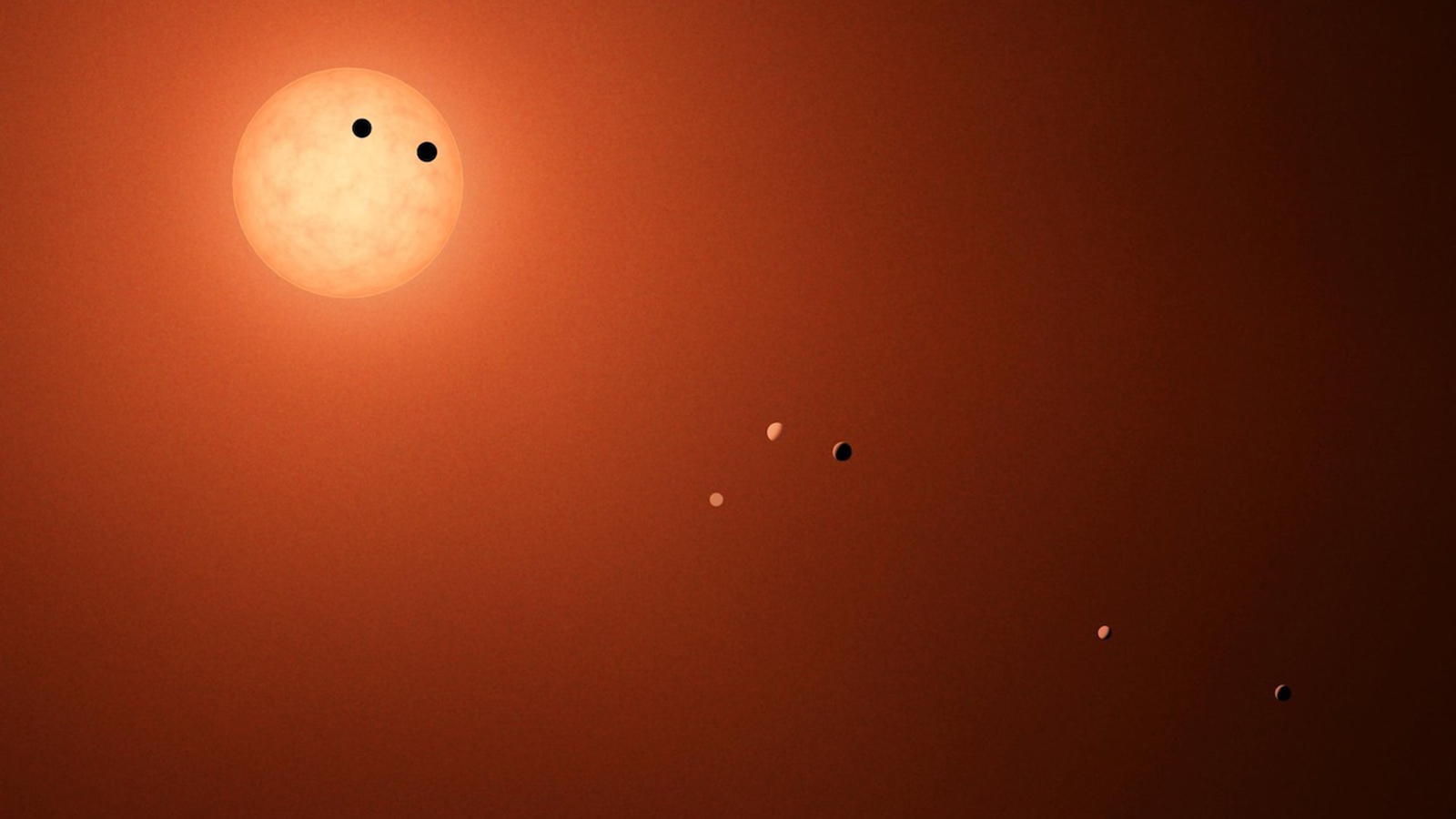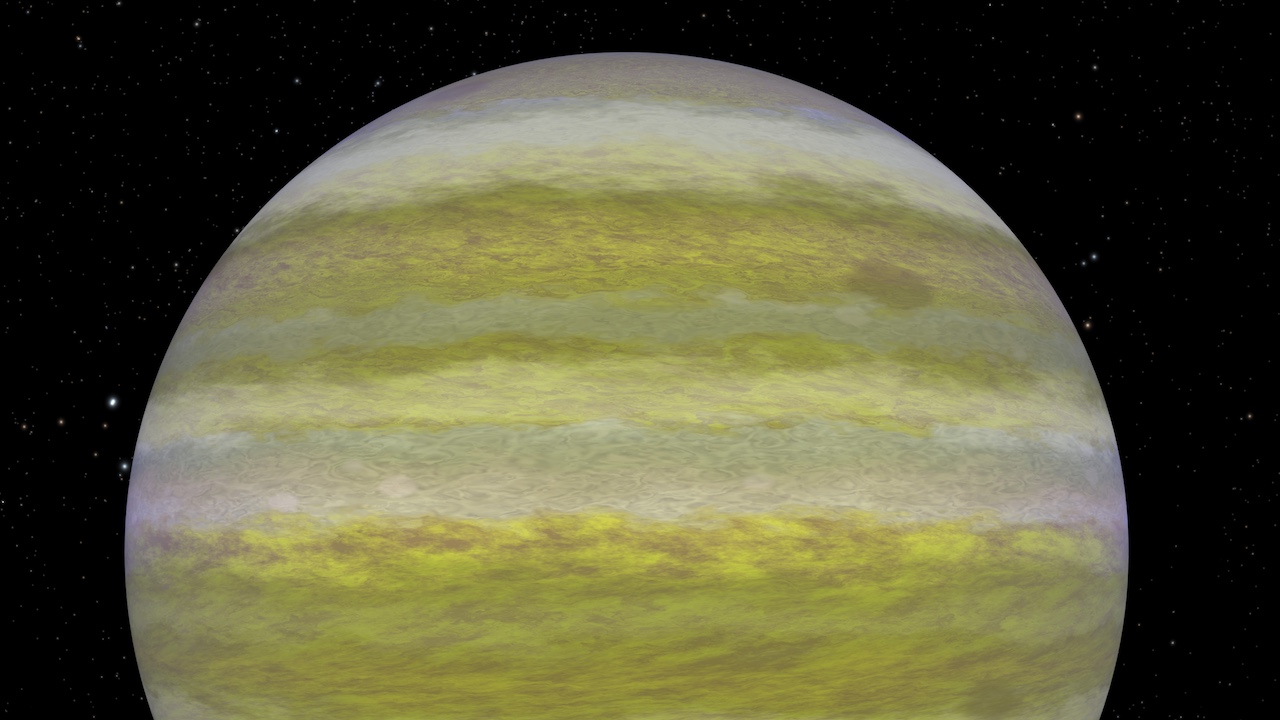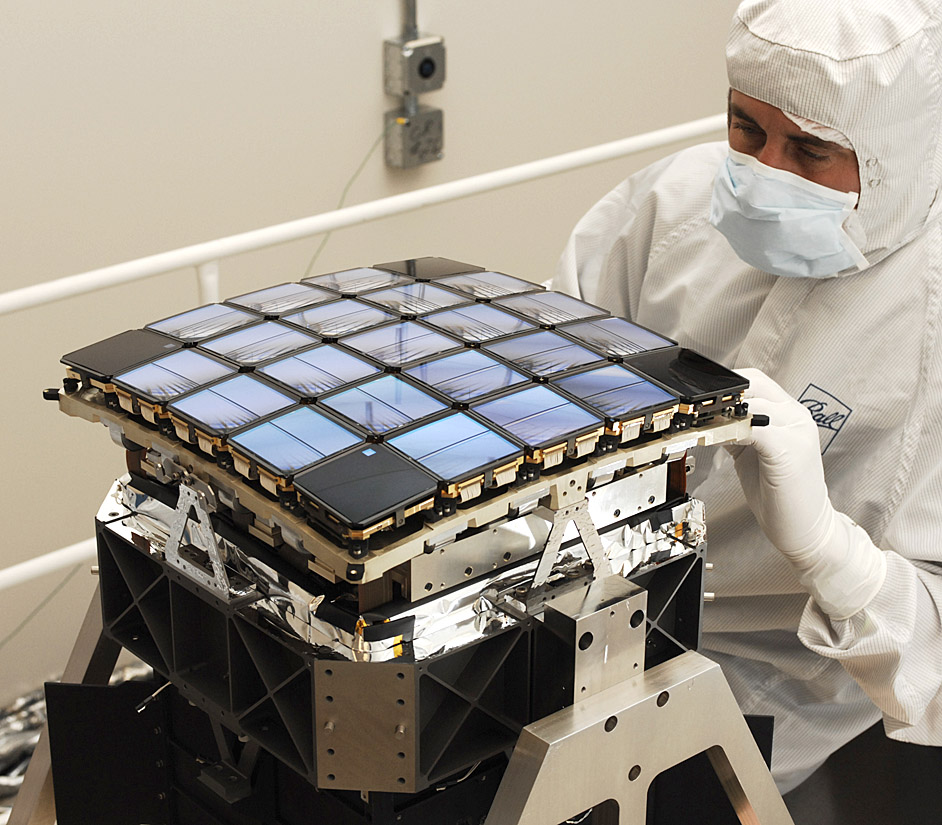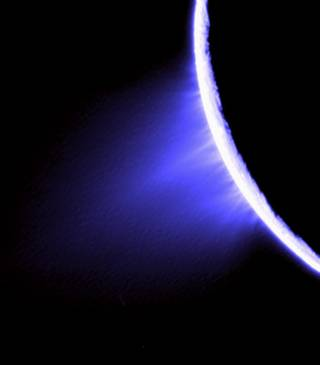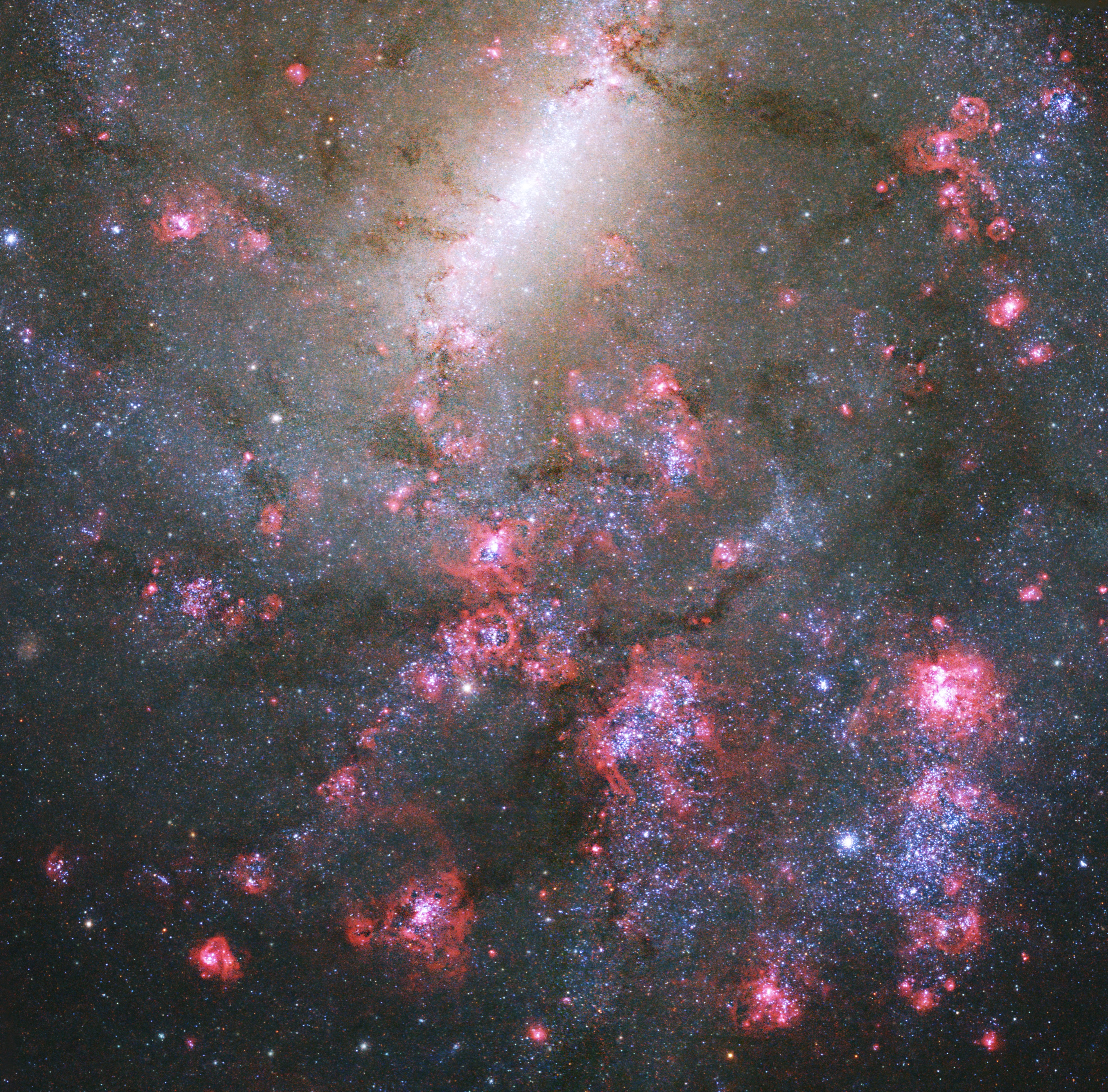5 min read
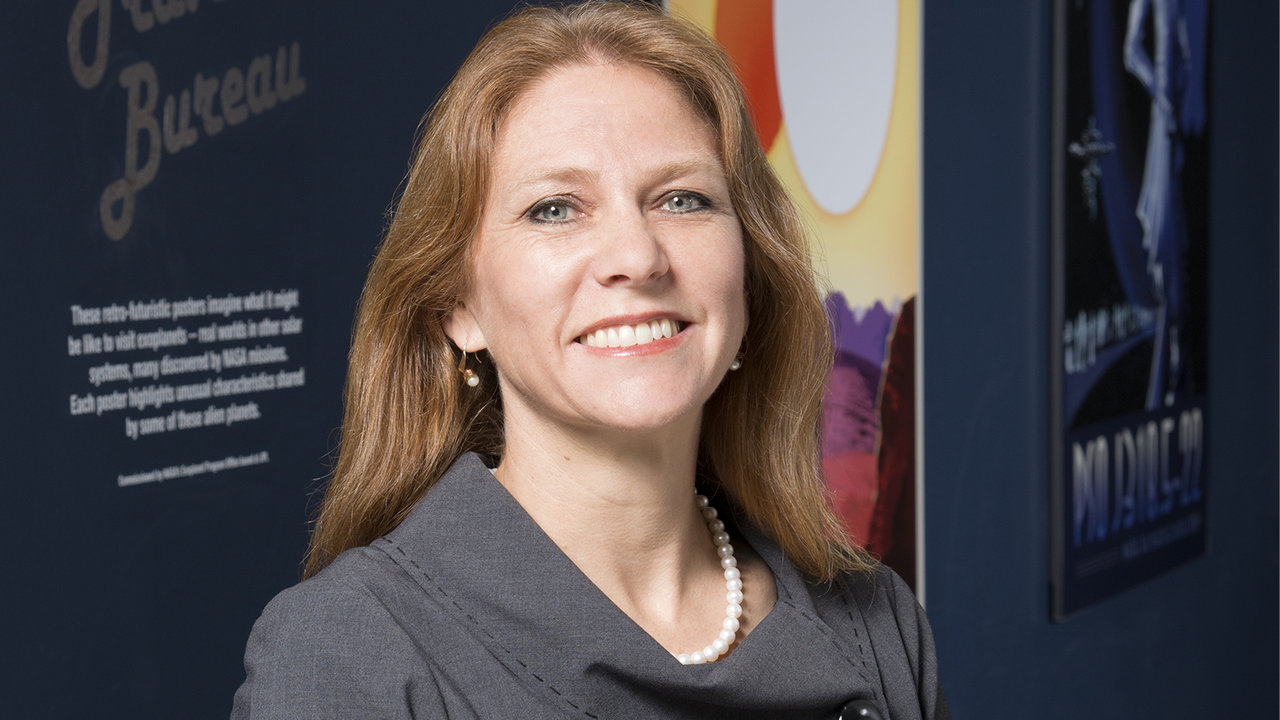
By Pat Brennan,
NASA's Exoplanet Exploration Program
The seeds of Kendra Short’s passion for space were planted early. She remembers being “one of those dorky little fourth graders who made Styrofoam solar system models.” The passion never left her in 27 years at NASA's Jet Propulsion Lab (JPL), serving in critical roles on Mars missions, as well as in Earth science and astrophysics.
Now Short is taking on a new challenge. As the deputy program manager for NASA’s Exoplanet Exploration program, Short will help identify the most promising missions in the search for new worlds throughout our galaxy—and for signs of life among them. Along with program manager Gary Blackwood, she will help steer a path for existing missions, providing oversight and guidance and working to build alliances throughout the scientific community.
Short, who lives in Glendale with her husband and two children and is a fan of cooking and gardening, took a moment to ponder her new role, and the future of exoplanet science.
What drew you to the exoplanet program?
I view it as the next big frontier in space science. We’ve done a lot within our own solar system, and this is the next discovery that could change the way we think about our place in the universe. It could open up entire new frontiers for instruments and remote sensing and discoveries, so it’s a very exciting field, and it’s just at the beginning, just in the early stages. You never know what you’re going to find, and that makes it exciting.
What are the program’s next big missions, or big steps?
Certainly WFIRST (Wide Field Infrared Survey Telescope, expected to launch in the mid 2020s) is one of the most exciting elements of the program’s portfolio. The large missions are interesting—MSL (Mars Science Laboratory, or the Curiosity rover), JWST (James Webb Space Telescope), and now WFIRST. There are always extreme engineering challenges associated with those projects. To be able to navigate those waters and make smart decisions during project implementation is critical to success. That is a challenge I’d like to help with.
What are the program’s high-level goals?
The Exoplanet Exploration Program aims at discovering planets around other stars, characterizing their properties, and identifying candidates that could harbor life.
It’s a new and exciting frontier—we didn’t even know or have any proof there were planets around other stars until just recently. If you think about that, that’s amazing: within our lifetime, to go from speculating it was true to proving it was true, proving how much it was true, maybe being able to characterize those worlds with spectroscopy (analysis of planetary light) and whatever other instruments we can envision. That’s an amazing leap forward. It’s kind of like taking our phones and turning them into mobile computers. It happened so fast and now it’s expected. It blows my mind.
How did you first get interested in space science?
I grew up wanting to be an astronaut. Space, overall, it’s been in my blood since I was a kid. I’ve always worked at JPL in my career; I came right out of college.
What are some of the other projects you’ve worked on?
Within my career at JPL I’ve explored all of the areas of space science that JPL is involved in. I’ve done planetary with Cassini, I’ve done Mars (MSL, MER, Mars Pathfinder), Earth science with SRTM ( Shuttle Radar Topography Mission—single pass interferometric measurements of land topography, land height; it flew on a two-and-a-half-week shuttle mission that mapped 80 percent of Earth with synthetic aperture radar), and my most recent project, SWOT (the Surface Water and Ocean Topography mission).
I’ve done planetary, I’ve done Mars, I’ve done Earth science, I’ve done a little bit of astrophysics. I’m kind of coming back around to astrophysics. I’m very excited. I wouldn’t say I set out looking for exoplanets as a career goal, (but) if you look at the astrophysics portfolio, right now, exoplanet activity is a very exciting part of it, in my estimation.
What engineering question intrigues you the most?
The future of large, space-based telescopes, and the engineering technology associated with that, whether it will be segmented reflectors, wavefront sensing and control, extreme stability; those are very different engineering challenges, ones that I think NASA is ready to solve, ready to take it to the next level.
Any advice for young people considering a career in a related field?
Never stop asking questions, never stop trying. That’s the fun of engineering, trying to do something that hasn’t been done before, and not giving up when it doesn’t work the first time. Learn, fix, try again. That’s the whole nature of engineering.

